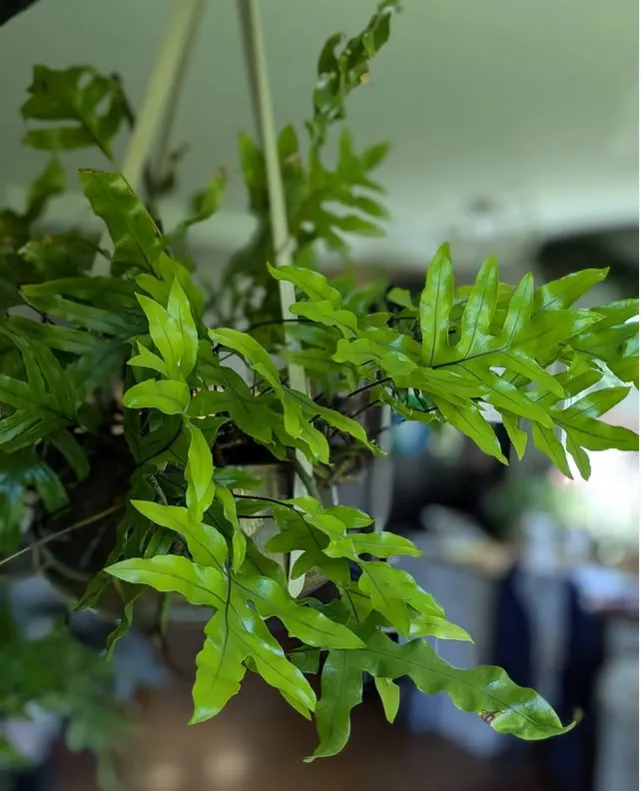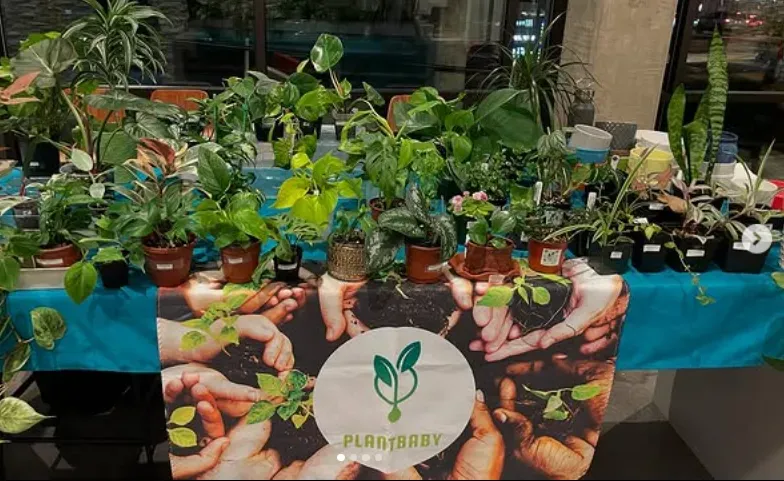Have you heard of North Beacon Hill’s Queer-owned and sustainable nursery, Plantbaby? Founder Jay Galligher launched it in the summer of 2021 to increase the number of sustainable alternatives when it comes to plant shopping. All of its plants are rescued, grown, or propagated locally and are proudly peat-free. And for Seattle residents who have turned their homes into an overcrowded jungle sanctuary, there is an option to sell your plants.
As a technical digital health worker who was building wellness mobile apps and seeking a change before the COVID-19 pandemic erupted, Galligher leaned into his interest of living sustainably as a society. He returned to school for an MBA in managing for sustainability, and while in that program, discovered that most human consumption isn’t sustainable.
“The operations and infrastructures that we’ve optimized since the Industrial Revolution are heavily entrenched. I thought surely plants are sustainable, right? Nope,” Galligher told the SGN. “In my research, I found that the largest problem with getting plants more sustainable is the horticulture industry’s use of peat moss, despite that there are alternatives growers can use, such as coco coir,” a natural byproduct of harvesting coconuts.
Galligher explained how Plantbaby made the decision to locally rescue, grow, and propagate plants rather than importing or shipping within the state.
“We need help spreading the word about the horticulture industry’s use of peat moss and its harmful effects,” Galligher said. “Start demanding that your plants are made in a peat-free fashion. We also want you to know about us and that we’ve got plants for you right now that are healthy, grown here, and peat-free.”
According to Oregon State University (OSU), the harvesting of peat moss takes place primarily in Canada and Russia and comes from bog and fen plants from across the globe. Linda Brewer, a soil scientist at the Department of Horticulture in OSU’s College of Agricultural Sciences, said these plants extract carbon from the air, where it has been trapped for 10-12,000 years.
“As it’s harvested, the carbon is released back into the atmosphere, contributing to a warming climate. Harvesting peat moss also destroys a native habitat essential to the survival of many birds, reptiles, insects, and small mammals,” according to OSU.
Galligher said some peat-free mixes that can be used for houseplants include Rosy soil, Mother soil, and Oh Happy Plants soil. Plantbaby’s focus on sustainability has led to an increased demand for pop-ups, which is currently exceeding the shop’s supply of peat-free plants.
“If you like to propagate your plants or are moving and want to ensure your plants go to a good home, look us up and we’ll make you an offer and/or take them in as a donation anytime,” Galligher said. “If anyone’s a larger-scale grower (greenhouse level) and wants to partner with us to go peat-free, we’d like to talk to you.”

Community involvement
Creating a more sustainable world cannot be done solely by one business — it takes an entire movement of people and growers. So Plantbaby will be appearing at events across the city, like the Fremont Sunday Market, and at Seattle parks.
“We have some private events happening at Seattle apartment buildings, such as the Arlo or Hilite in the Columbia City area, where we’ll be having either pop-up sales and/or doing our ‘Plant Doc Sessions,’ where we go on-site and provide expert plant services on care, diagnosis, or just general consultation for residents,” Galligher added.
Plantbaby was present at Seattle’s Pride in the Park event earlier this June, where staff collected donations and had a section where people could pay what they wanted or could, with net proceeds benefiting the Trevor Project.
“We were able to raise about $256, which was quadruple-matched by a corporate donor through Sunday, June 8, making our final donation amount $1,024,” Galligher said.
People seeking to sell plants can visit Plantbaby’s website at https://plantbaby.io or via Instagram and TikTok @plantbabypnw. Additionally, growers can list their plants online or visit pop-ups to clear out any plants.
“We take plants, planters, or nursery containers from the community anytime they have a need to clear stuff, and we’ll reuse or rehome them. Our goal is to minimize plant and plant accessory waste,” Galligher mentioned.
As for his favorite Plantbaby offerings, Galligher likes hoyas due to their thick, waxy leaves and blooms.
“Next, I’d have to say anything variegated in color, such as an Alocasia frydek or a Philodendron Brasil,” Galligher said. “If you like a more challenging plant, alocasias could be up your alley. If you like easy to grow, go for a philodendron or even a hoya.”
Support the Seattle Gay News: Celebrate 51 Years with Us!
As the third-oldest LGBTQIA+ newspaper in the United States, the Seattle Gay News (SGN) has been a vital independent source of news and entertainment for Seattle and the Pacific Northwest since 1974.
As we celebrate our 51st year, we need your support to continue our mission.
A monthly contribution will ensure that SGN remains a beacon of truth and a virtual gathering place for community dialogue.
Help us keep printing and providing a platform for LGBTQIA+ voices.
How you can donate!
Using this link: givebutter.com/6lZnDB
Text “SGN” to 53-555
Or Scan the QR code below!



